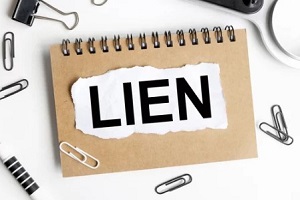 Title insurance is often acquired as a part of the process during a home purchase transaction. For owners, their title insurance policy remains in effect throughout the duration in which they own their home.
Title insurance is often acquired as a part of the process during a home purchase transaction. For owners, their title insurance policy remains in effect throughout the duration in which they own their home.
For lenders, this remains in effect as long as they have money invested in the home (mortgage). In this review, we discuss the role of title insurance for a house, what it does and does not include, and the different types of policies, among other important aspects that are essential to understand.
What is Title Insurance for a House?
Title insurance is an insurance policy that protects the policyholder from financial loss due to issues with the title of a property and ownership. Title insurance specifically provides coverage for legal fees, title searches and other costs associated with the title that could arise throughout the transfer of the title during a home sale.
In most cases, the policyholder purchases title insurance at the time of closing (or during due diligence), and the policy usually remains in effect as long as the policyholder owns the house.
Title insurance for a house provides peace of mind for all parties involved with a sale, including buyers, lenders, sellers and real estate agents. In most cases, title insurance is necessary during the due diligence stage of a real estate purchase.
What Does Title Insurance Include?
The primary purpose of title insurance is to protect the policy holder from underlying issues with the property’s title that may have been undiscovered before the purchase. More specifically, a policy is beneficial if a home title search is required, protecting the policyholder if there are any liens, ownership disputes, etc.
The types of issues the policyholder is protected against include but are not limited to:
 Liens from contractors, taxing entities and previous lenders
Liens from contractors, taxing entities and previous lenders- Forged documents
- Survey errors related to the property
- Building code violations related to previous owners
- Errors on the property deed
- Boundary disputes and encroachments
- Spouse claims (e.g., if the spouse did not sign off on the sale)
Keep in mind, this is not an all-inclusive list; depending on the history of your home, there are a variety of issues that could arise during title transfer. The best way to ensure you are adequately protected is by purchasing a title insurance policy.
What Does Title Insurance Not Include?
Title insurance protects the policyholder from existing issues with their home title. It may also provide protection if future incidents occur in which the holder is not at fault.
However, it does not cover instances in which the owner has title problems due to their own errors, missed mortgage or lien payments, etc. Of course, all policies are different, and you should speak with the title company directly to learn about what may not be covered in your policy.
For example, if the homeowner (policy holder) fails to pay a contractor for work done on the home and subsequently there is a lien placed on the house, then their title insurance may not cover the associated costs. Additionally, title insurance policies generally do not cover the costs associated with eminent domain, which occurs when the government seizes the private property.
Owner’s Policy vs. Lender’s Policy: What is The Difference?
There are two primary types of title insurance policies, which are the owner’s policy and the lender’s policy. An owner’s title insurance policy protects the home buyer’s equity. Consequently, the coverage amount is usually equal (or similar) to the purchase price and remains in place as long as the buyer owns the house.
A lender’s policy protects the lender; more specifically, it protects the lender’s investment into the property. A lender’s title policy is usually required anytime there is a mortgage taken during a home sale.
Both policy options cover property ownership and title issues, including but not limited to liens, encumbrances and easements. However, every policy should be unique and personalized, meeting the precise needs of the lender or the buyer.
Is Title Insurance Necessary?
 This depends on your role in the home buying process. For instance, when purchasing a home with a mortgage, a lender’s title insurance policy is required. However, an owner’s title insurance policy is not required (but still highly recommended).
This depends on your role in the home buying process. For instance, when purchasing a home with a mortgage, a lender’s title insurance policy is required. However, an owner’s title insurance policy is not required (but still highly recommended).
The risks associated with not having title insurance are far greater than the one time cost an owner pays for their policy. Keep in mind, there were, in most all cases, previous owners of your house and your land. The builder of the land may not have paid all of their contractors, which could create concerns and lead to high costs you are obligated to pay without title insurance.
Call The Title Insurance Pros at Mathis Title Company
We take genuine pride in assisting home buyers, home sellers, lenders and real estate agents with title services, including title insurance. If you are in need of title insurance, or other title-related needs, contact Mathis Title Company today. We will gladly answer your questions and assist you with developing your policy.
 Commercial real estate transactions are considerably different from residential transactions. Most notably, the sum of money being exchanged is much larger. For this reason, lenders must know they are well protected before they provide a loan for a buyer. Commercial land
Commercial real estate transactions are considerably different from residential transactions. Most notably, the sum of money being exchanged is much larger. For this reason, lenders must know they are well protected before they provide a loan for a buyer. Commercial land  Commercial land title insurance providers detect and seek to eliminate title concerns before the purchase occurs, protecting the buyer and lender from costs associated with title concerns discovered later. Specifically, the title company conducts an extensive title search to uncover possible
Commercial land title insurance providers detect and seek to eliminate title concerns before the purchase occurs, protecting the buyer and lender from costs associated with title concerns discovered later. Specifically, the title company conducts an extensive title search to uncover possible  A commercial land title insurance policy can be purchased through a title company of your choice. Ideally, you should choose a company that has experience with commercial land transactions in your area.
A commercial land title insurance policy can be purchased through a title company of your choice. Ideally, you should choose a company that has experience with commercial land transactions in your area. A
A  Certain exceptions can often be eliminated by attaining a release, waiver, affidavit, deed or other official document. Your
Certain exceptions can often be eliminated by attaining a release, waiver, affidavit, deed or other official document. Your  Wire fraud is a type of real estate fraud where the fraudster steals money during a real estate transaction. In most cases, this involves the diversion of funds away from the intended recipient and to the fraudster.
Wire fraud is a type of real estate fraud where the fraudster steals money during a real estate transaction. In most cases, this involves the diversion of funds away from the intended recipient and to the fraudster.  Title insurance policies provide peace of mind for the policyholder as they know their title is well-protected. The title insurance company keeps a close eye on the title to ensure no fraud occurs and will promptly take action if fraud does occur.
Title insurance policies provide peace of mind for the policyholder as they know their title is well-protected. The title insurance company keeps a close eye on the title to ensure no fraud occurs and will promptly take action if fraud does occur.  A home title denotes who has legal ownership of a particular property and is usually in the form of a deed. Home title fraud, also called deed fraud, occurs when the title to your home is stolen and is a form of identity theft.
A home title denotes who has legal ownership of a particular property and is usually in the form of a deed. Home title fraud, also called deed fraud, occurs when the title to your home is stolen and is a form of identity theft. Of course, you have the option to fight the theft and
Of course, you have the option to fight the theft and  Title insurance is a great way to protect yourself from financial responsibility related to title fraud against you and reduce your overall risk. Notably, title insurance is recommended for title owners who are at a higher risk of fraud (i.e. individuals who own multiple titles) and those who are going through a real estate transaction. Title services are recommended for buyers, sellers, lenders and real estate agents who need to reduce their overall risk.
Title insurance is a great way to protect yourself from financial responsibility related to title fraud against you and reduce your overall risk. Notably, title insurance is recommended for title owners who are at a higher risk of fraud (i.e. individuals who own multiple titles) and those who are going through a real estate transaction. Title services are recommended for buyers, sellers, lenders and real estate agents who need to reduce their overall risk.